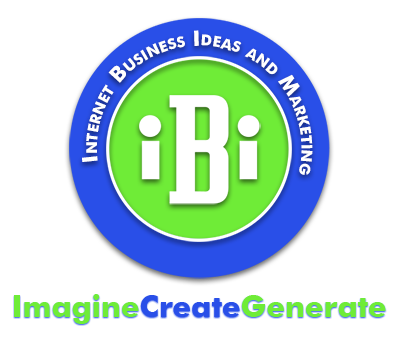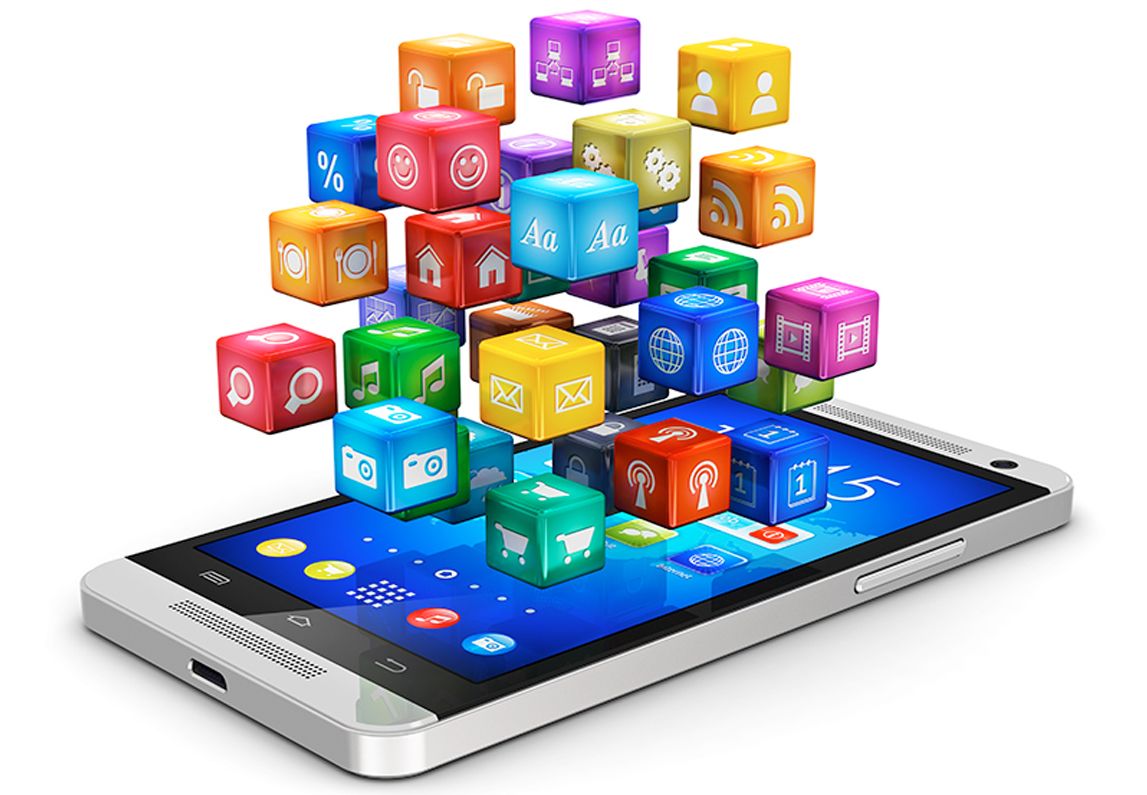A few examples of Mobile Apps are Facebook, video games, booking reservations, Yelp, reward cards, Snapchat, text notifications, calculator, calendar, LinkedIn, appointment settings, coupons, flashlights, etc.; Imagine all these features and more in one location. That is the type of mobile apps that Ibi Marketing develops. We build apps starting at $750. I will explain what types of apps and features that are offered.
There are over 190 million tablets in the U.S. and 1.5 billion smart phones in the world. The average person spends 3+ hours a day on the phone in the U.S. Humans are spending more time on mobile devices than on PC’s. This is a wonderful thing if you have adjusted your marketing strategy accordingly because 6 out of 10 purchases made online start from a mobile device. If you offer internet-based services or products, I recommend using a mobile app to help make sales. You must make it possible for clients to do the same things that they would conventionally do when sitting in their offices. Offer valuable solutions for customers remotely. The more opportunities you offer potential customers to reach you, the better off your business will be. Fill out an application today and get a quote.
I always hear people say, “I have a friendly mobile (responsive) website and I don’t need a mobile app.” That is a great start to get new customers but if you want to retain and have clients use your products and services MUCH MORE often then you need a mobile app.
Ibi Marketing defines a mobile app as a computer software application designed to run on a mobile device such as a phone, tablet, or watch. There are only 3 types of Apps. Native, Hybrid (Progressive Web App), and web apps. Internet Business Ideas and Marketing LLC develops all 3 versions. I will explain in detail what these versions are later in this blog.
How do mobile apps benefits businesses and users?
Increase Visibility to Clients at All Times.
If your business has a mobile marketing strategy you will be exposed to numerous more eyeballs. Your image, name, and logo needs to be seen when these masses scroll, unlock, and do whatever they do while on the go. People us mobile devices when waiting at the bus stop, riding to and from work, at a sporting event, on the toilet, and even when watching TV. All these are suitable times to send a notification to prospective clients.
Market More Directly
Mobile apps bring a lot of information to your business about your customers. Examples are demographics and geographical locations. More importantly, you can give a lot of information to your clients about your products and services. Examples are news feeds, product specifications, new features, prices, promotions and special rates. You can know the preferences of certain customers and meet their individual needs. The fact that you are marketing more directly is a huge advantage.
Domino’s Pizza created a mobile app for ordering delivery or in-store pickup of their food, they saw an ecommerce rise of 28 percent in 6 months. Mobile devices now account for 52 percent of their online orders.
Provide Your Customers with Value
Offer a digital loyalty program. There is no need for those old paper business size cards that people mostly misplace, forget, or throw away. Offer GEO notifications when potential clients walk or drive near your store. Your ad pops up on their phone to tell them about your specials. In addition, you can send a “thank you” notification to your clients after making a purchase. There are many more benefits that is listed later in this post.
Build Brand Recognition
Have an app with features that will keep your targeted audience interested. This is much more effective than putting up an expensive billboard. The more often they interact with it, the more they will actually like the products or services it sells. This is called effective frequency. It states that if customers see the brand more than 20 times, then it is truly noticed.
Ibi Marketing designs mobile apps with a sharing option where users can share your communication with their friends. Imagine having a friend telling you about a great service or product he or she bought somewhere. Studies indicate that referrals and third-party sales are among the most valuable marketing strategies.
Increase Customer Engagement
Being accessible to your clientele is imperative nowadays. Have a help desk on the mobile platform where customers can post their questions, orders, comments and complaints. Make the booking or ordering procedure as simple as possible yet secure. People are discouraged by lengthy procedures. You can reply to all their communication personally and increase your customer engagement
Stand Out from the Crowd
The fact that a mobile app sets you apart cannot be overemphasized. By the time your competitors are realizing its importance, you will have grabbed almost the entire market share. No matter what you sell, you can take a commanding role among your peers.
Increase Customer Loyalty
Is repeat business important to you? Customer loyalty can be achieved when you constantly remind your clients about your existence and the kind of products or services you sell. Offering digital solutions right at their fingertips whenever they want is luxurious service on demand. Starbucks uses their mobile app to their advantage by offering rewards exclusively to app subscribers, which then motivates customers to buy coffee (And other delicious snacks) from them.
Turn Your App into a Social Platform
People on social media just log in to see what their friends are saying. Incorporate this idea into your marketing strategy so that people actually see your brand while they catch up with their friends. Include features like in-app messaging, comments, likes and photo-sharing capabilities. Additionally, enable logging in to the app via Facebook and Twitter. This approach has proven effective in increasing customer engagement, repeated sales, retention and monetization.
The biggest mistake that people make once they get a mobile app is they don’t market it. You need to promote your mobile app before and after it launches. Ibi Marketing has a few downloadable items to assist in promoting your app. I recommend you put it on your business cards, on your website, tell your friends, post on social media, utilize PPC, and SEO. Offer special giveaways and a necessity to have your app then you will find a demand for the use of your app.
Here are a few features of a mobile app:
v One Touch Calling
v Tell-A-Friend
v Social
v News Feed Stream
v Custom Contact Form
v Business Info/About Us
v Website in App
v Push Notification
v GPS/Mobile Coupons
v Mailing List
v Video Page
v Image Gallery
v Email Us Photos
v Fan Wall
v GPS Directions
v Loyalty Reward Cards
v Blog Integration Membership
v Voice Record
v Message Feature
v QR Coupons
v GEO Notifications
v Food Ordering
v Mobile Reservations
v Tip Calculator
v Real Estate listings
v Mortgage Calculator
v Mobile Shopping
v Podcast
v Music Player
v Event Attendance
v Points of Interest
v Event Listing
v Sports Stats
v MANY MORE FEATURES for all types of businesses.
Native Apps are developed for a single mobile operating system or platform exclusively. Apps built for systems like iOS, Android, Windows phone, Symbian, Blackberry cannot be used on a platform other than their own. In other words, you won’t be able to use Android app on iPhone.
Main advantage of native apps is high performance and ensuring good user experience as developers use native device UI. It also allows for access to a wide range of APIs that puts no limitation on app usage. Native applications are distinctly accessible from app stores of their kind and have the clear tendency to reach target customers.
Some cons to native apps are higher cost compared to other types of apps. The reason is the need of creating app duplicates for other platforms, separate support and maintenance for different types of apps resulting in bigger product price.
Hybrid apps (also known as PWA- Progressive Web Application) are built using multi-platform web technologies (for example HTML5, CSS and JavaScript). Hybrid apps are basically website applications in a native wrapper. PWA’s possess usual pros and cons of both native and web applications. As technology expands more native features will be available for PWA’s.
Hybrid multi-platform apps are fast and relatively easier to develop. Single code base for all platforms ensures low-cost maintenance and smooth updates. Widely used APIs, like gyroscope, accelerometer, geolocation is available. The cost is less than a native app.
The downside to hybrid applications is that they lack in performance, speed and overall optimization in comparison to native apps. There are also certain design issues due to app inability to look in exactly same way on two or more platforms.
Web apps are software applications that behave in a fashion similar to native applications. Web apps use a browser to run and are usually written in HTML5, JavaScript or CSS. These apps redirect a user to URL and offer “install” option by simply creating a bookmark to their page.
Web applications require minimum of device memory, as a rule. Users can get access from any device whenever there is internet connection. That is why the use of web apps with poor connection would result in bad user experience. The drawback is access to not that many APIs for developers, with exception of geolocation and few others.
The conclusion to this article, is that the majority of industries should have a mobile app. Within a few years’ mobile apps will be to a business what websites are today. As you read this article your competition is probably using an app and stealing potential clients. I recommend contacting a representative (561-328-7071) to get a quote or answer some questions.

